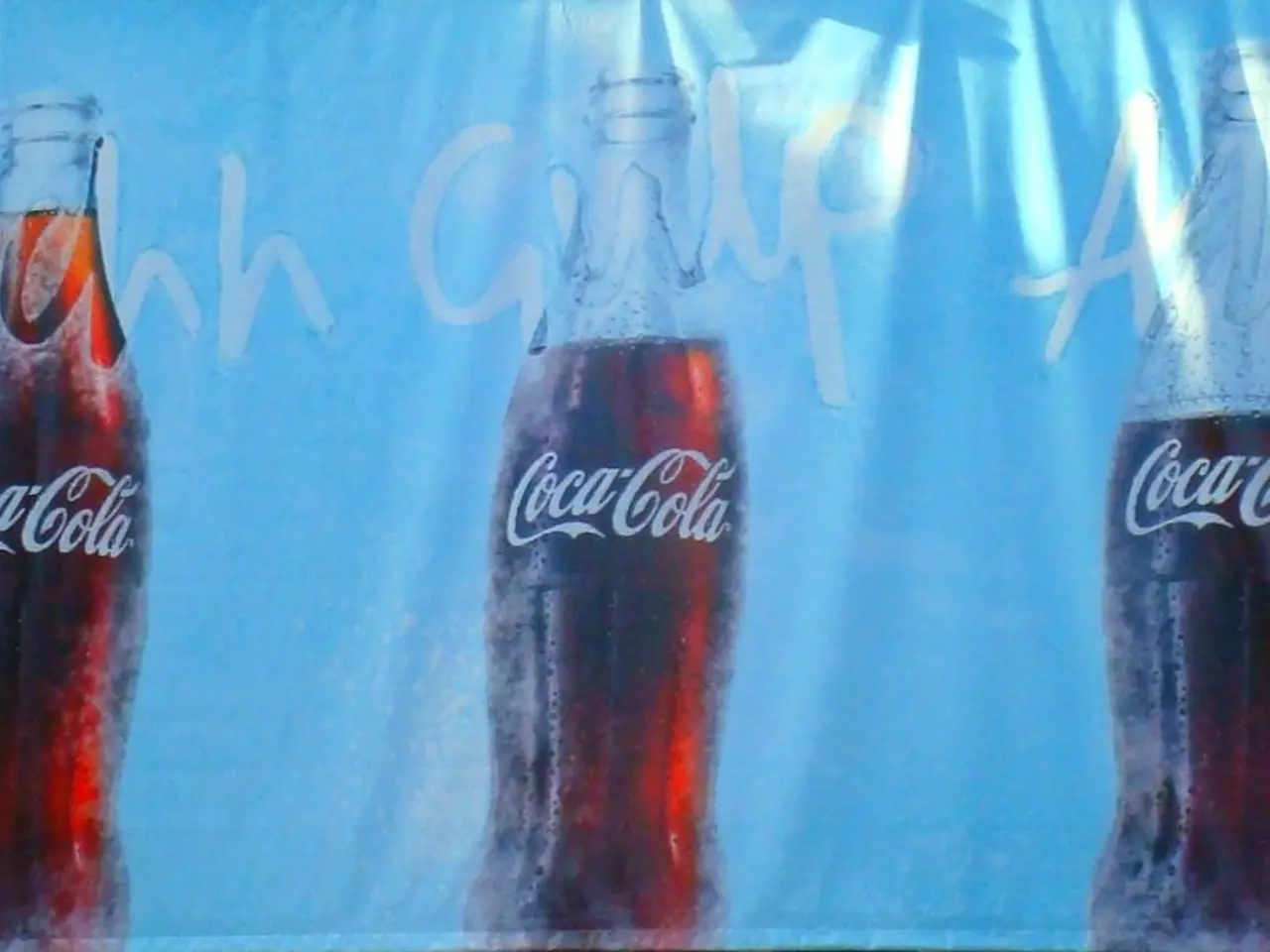Coca-Cola to switch to cane sugar in U.S.-based Coke production, as announced by Donald Trump
In a surprising announcement, US President Donald Trump declared that Coca-Cola has agreed to sweeten its signature soft drink with cane sugar in the United States. However, the soft drink giant has not officially confirmed this change, leaving the debate open to interpretation and raising significant economic and industry concerns.
Coca-Cola's potential switch from high-fructose corn syrup to cane sugar could potentially delight or alienate farmers in regions where President Trump has strong support, as a significant portion of high-fructose corn syrup production occurs in midwestern farm states that largely voted for Trump in the 2024 presidential election.
The potential shift has sparked controversy and concern, particularly among US corn producers and related trade groups like the Corn Refiners Association. John Bode, chief executive of the Corn Refiners Association, argued that moving from corn syrup to cane sugar could "wreak havoc" on the agricultural industry and disadvantage farmers growing the U.S.'s largest crop, corn.
Coca-Cola's plans regarding the shift to cane sugar remain vague. The company has defended its continued use of high-fructose corn syrup, emphasizing that it has a similar calorie content and metabolic effect as table sugar. Coca-Cola already uses cane sugar in Coke distributed in the European Union, including in Ireland.
Shares of Archer Daniels Midland and Ingredion, two of the largest publicly traded corn processors, saw significant drops in after-hours trading following Trump's announcement, but most of these losses were recovered after Wall Street reopened.
Trump's health secretary, Robert Kennedy Jnr, is pursuing a broader crackdown on highly processed foods, including ice cream companies pledging to stop using certified artificial colours in their frozen dairy products. Meanwhile, PepsiCo, a rival soft-drink maker, has expressed a willingness to give consumers products with sugar and natural ingredients if that's what the consumer prefers.
Coca-Cola's statement about the shift did not address questions about the sourcing of the volumes of cane sugar they would need or whether any cane-based cola would replace or complement current drink ingredients. Coca-Cola's bottlers used cane sugar in US production until the 1980s and continue to use it in most foreign production, including in Mexico and for some special variations like Kosher for Passover.
The effects of high-fructose corn syrup on health compared to other forms of added sugars has long been a source of controversy. Trump's announcement has certainly brought this issue to the forefront of public discussion.
In summary, while there is political pressure and public discussion about Coca-Cola transitioning to cane sugar in the U.S., the company has not outright confirmed this change, and the debate has raised important economic and industry concerns. The beverage industry is closely watching the situation, with potential implications for supply chains, agricultural markets, and consumer preferences.
The potential shift towards cane sugar could impact various aspects of the business industry, as Coca-Cola's change in production might affect agricultural markets, particularly corn producers associated with the Corn Refiners Association. Moreover, this decision could influence lifestyle choices, as consumers may perceive healthier food-and-drink options associated with cane sugar compared to high-fructose corn syrup.




